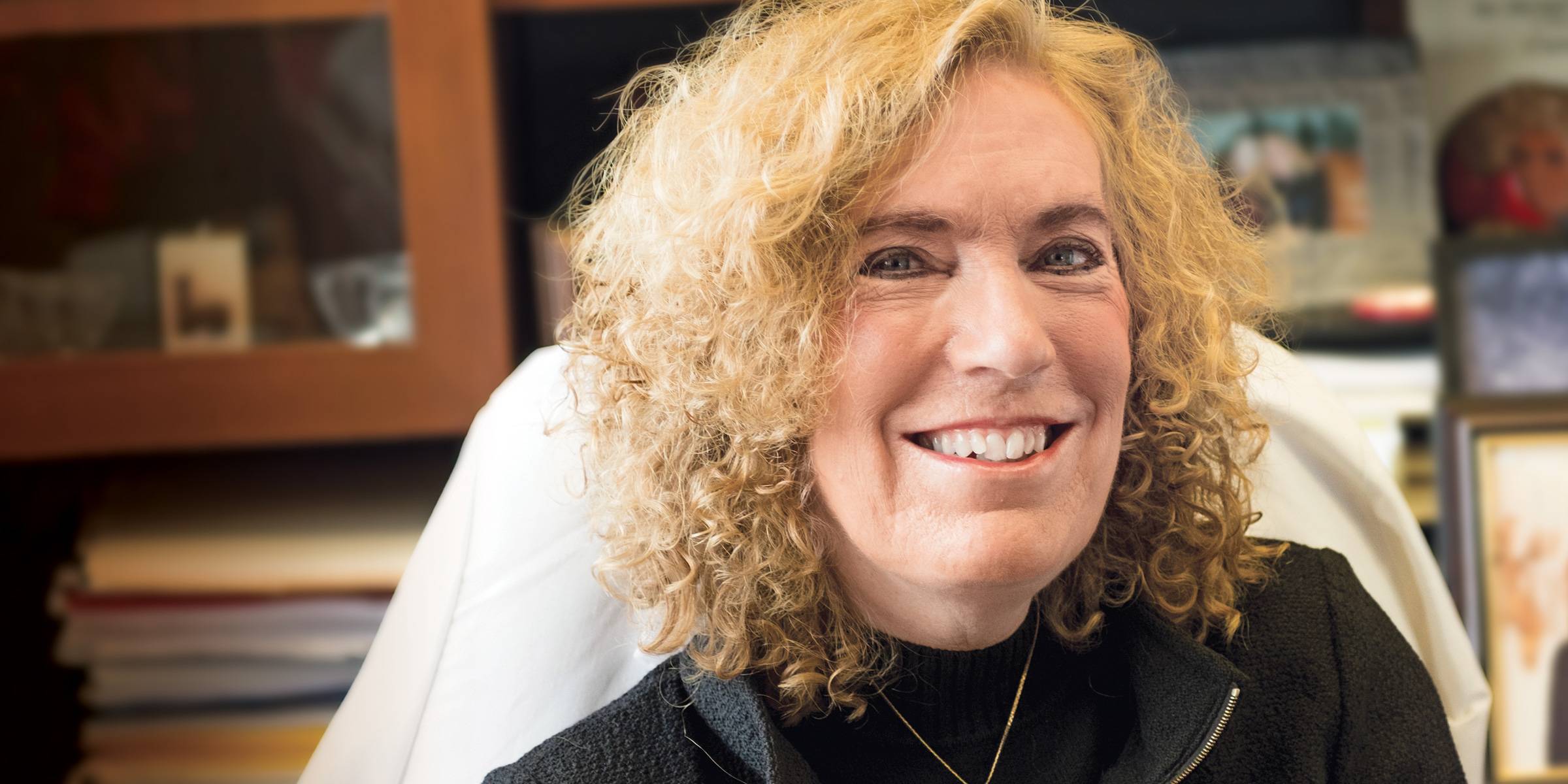Elaine Fuchs, Ph.D.
Rebecca C. Lancefield Professor
Investigator, Howard Hughes Medical Institute
Adult stem cells reside in all tissues, where they replenish dying cells and repair wounds. Using mammalian skin as model, Fuchs studies the remarkable properties of these stem cells, including how they know which tasks to perform and when. She explores how stem cells sense and communicate with other cells in their tissue environment. Aiming at advancing therapeutics, she dissects how communication networks malfunction in inflammation, aging, and cancer.
At the interface between our body and the environment, the skin epithelium must continually rejuvenate to survive the barrage of daily stresses. Fuchs’s lab focuses on the stem cells that balance self-renewal with tissue regeneration in the skin. They investigate how stem cells make tissue and repair wounds and how this changes in inflammation and tumorigenesis. Her research employs high throughput transcriptomics and genomics, live imaging, cell biology, and functional approaches to unravel the complexities of tissue biology in health and disease. Her team investigates how skin stem cells establish unique chromatin landscapes and programs of gene expression and how this shifts in response to changes in their local environment. They seek to discover the molecular crosstalk between stem cells and their neighboring tissue cells (such as immune cells, fibroblasts, vasculature, and neurons) that instruct the stem cells to make epidermis or hair, or repair wounds, and how that molecular crosstalk changes upon inflammation, mechanical stress, aging, and cancer.
The team also discovered that epithelial stem cells acquire and retain epigenetic memories of their past encounters, including inflammation. These changes persist within the stem cell’s chromatin long after pathology is restored. While these memories can be beneficial and result in faster wound repair and broader pathogen resistance, they can also be maladaptive and casue chronic inflammation and increased susceptibility to cancer. Fuchs hopes that unraveling the underlying mechanisms will guide the discovery of new therapeutic routes to erase bad memories without losing good ones.
Fuchs’s group also learned that cancer cells hijack the basic mechanisms that enable stem cells to replenish dying cells and to repair wounds. They focus on squamous cell carcinomas, which are among the most common and life-threatening human cancers worldwide. Using high throughput genomics in mice, they have identified and characterized features of the cells that propagate these cancers in skin. They devised methods to mark and track the behavior of these tumor-initiating stem cells and discovered that not only are these cells at invasive fronts of the cancers, but they are also responsible for tumor relapse following chemo- and immune-therapies administered to mice with tumors. By dissecting the underlying mechanisms, performing high-throughput functional screens for oncogenes and tumor suppressors in mice, and relating their findings to humans, Fuchs hopes her research will lead to new therapeutic approaches that target the cancerous stem cells without affecting tissue stem cells.
Overall, Fuchs studies tissue biology at multiple levels, from its stem cells and the signals that control them to the epigenetic, transcriptional, and translational programs that maintain an orchestrated balance of tissue growth. While the foundations of normal tissue homeostasis and injury repair are still unfolding, the fundamental discoveries that Fuchs’s lab has made already provide insights into how skin and its stem cells cope with different environmental stresses, including aging, inflammation, and cancer.
Fuchs is a faculty member in the David Rockefeller Graduate Program, the Tri-Institutional M.D.-Ph.D. Program, and the Tri-Institutional Ph.D. Program in Computational Biology & Medicine.
